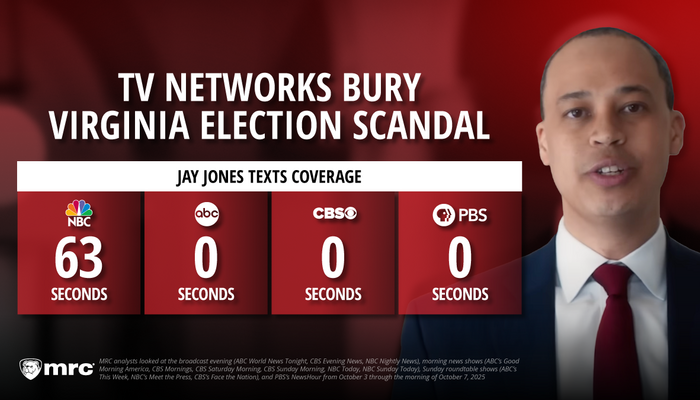
reactormag.com
Radioactive Wastelands and Also Legal Wrangling: Kelly and Zach Weinersmith’s A City on Mars
Books
Seeds of Story
Radioactive Wastelands and Also Legal Wrangling: Kelly and Zach Weinersmith’s A City on Mars
Real talk about how we can settle space — and if it’s really a good idea.
By Ruthanna Emrys
|
Published on October 7, 2025
Comment
0
Share New
Share
Welcome to Seeds of Story, where I explore the non-fiction that inspires—or should inspire—speculative fiction. Every couple weeks, we’ll dive into a book, article, or other source of ideas that are sparking current stories, or that have untapped potential to do so. Each article will include an overview of the source(s), a review of its readability and plausibility, and highlights of the best two or three “seeds” found there.
This week, I cover Kelly and Zach Weinersmith’s A City on Mars: Can We Settle Space, Should We Settle Space, and Have We Really Thought This Through? It’s a funny, discomfiting takedown of one of the central tenets of science fiction, eventually working around to real long-term possibilities for humans living beyond Earth.
What It’s About
From its golden age onward, science fiction has been confident that humanity is on the verge of a great leap out into the universe. We will colonize the moon and Mars, the asteroid belt, space stations, and eventually exoplanets. Some stories focus on the initial steps of our own solar system; space opera usually has us spread throughout the galaxy, with Earth a dim myth or just an ancient backwater. We will do it because it’s hard, or because humans have a natural instinct to explore, or because you shouldn’t put all your eggs in one basket, or because Earth has become uninhabitable. (Definitely not because colonial cultures want to imagine colonialization that doesn’t displace people already there.)
The Weinersmiths examine the actual, evidence-based barriers to space settlement, and what would be needed to overcome those barriers. The list is extensive, and Heinlein was extremely incorrect when he claimed that “Interplanetary travel is waiting at your front door—C.O.D. It’s yours when you pay for it.” Sure: the things you need to pay for include a ton of intermediate research.
A City on Mars starts with the biology of space travel. Some authors (Heinlein again) proposed that living on the Moon might be good for one’s health. Maybe joint problems would benefit from less gravity? It turns out, alas, that our bodies do much better in the environment where they evolved. For a start, Earth has extremely good radiation shielding. Long-term exposure to the radiation levels beyond our magnetosphere probably cause long-term physical damage, with a regular risk of short-term physical damage. We have limited data on what kind of damage, because so far, all long-term (i.e., still under 2 years) tenures in space have been on small stations inside the magnetosphere. Similarly, we know a reasonable amount about the health problems caused by microgravity on the space station, but not by the stronger but less-than-1G pull of Mars or the Moon. It would be nice to learn more before we sent a lot of people to live there.
Then the Weinersmiths get into the question of reproduction in beyond-Earth settlements, which is a lot of fun; I won’t summarize it here except to say that pregnancy is hard enough on Earth. Babies also have trouble with multi-hour exercise routines. There are decades of medical research required before we’re ready to train Martian midwives, and “strangely, among people advocating for vast space settlements in the next thirty years, nobody is doing the sort of enormous spending necessary to get answers.”
From there they move on to the perennial real estate question of location, location, location. The Moon is short on the carbon, nitrogen, and phosphorous required to grow plants (or any other sort of life). You’d also need radiation protection, which probably means living in (very small) underground habitats, and some way to deal with regolith (nasty to touch, nastier to breathe, clings to everything). But it’s close to Earth, and a good site for launching to elsewhere.
Elsewhere, for many, implies Mars. It’s got carbon, but it’s also got regolith and a perchlorate-infused surface that’s poisonous to earthly life. The thin CO2 atmosphere gets planet-wide dust storms. You’re also a long way from Earth—and from the Sun, increasing the investment needed for energy. But you could turn that atmosphere, long-term, into water and methane, and in the meantime you could recapitulate the growth of plants that ultimately turned Earth’s land from rock to ecosystems. (It took a while; I may cover Thomas Halliday’s Otherlands here sometime.)
Then there are space stations. You’re starting from scratch, so that’s even harder than the other options. We have yet to create a successful long-term-stable closed ecosystem on Earth. If we get that good at managing waste and energy and species balances, the odds are good that we’ll have done it through solving the most challenging problems our species currently faces. This would be a major bonus, but is also surprisingly low among the funding priorities for many settlement advocates.
You may have heard all these issues before, and indeed argued against them. But the Weinersmiths’ most interesting section focuses on the most annoying and least discussed barrier: space law. Post-WWII space exploration was closely tied to not only the Cold War, but to wartime rocketry development. The resulting treaties were generally concerned with avoiding the expansion of hot wars into space. This was valuable: as of my drafting this article, an impressive zero cities have been destroyed by orbital mass weapons.
The Outer Space Treaty limits land claims, and generally—also often ambiguously—describes what resources you can use in space, and how, without potentially starting a war. These limits could lead to a lot more—yet still ambiguous and potentially war-causing—constraint in, say, a land rush over the least-unlivable parts of the moon. They also (probably) constrain the creation of either country-specific space colonies or brand-new space countries. We need a lot more negotiation over, and clarification of, space law, to create settlements that don’t cause serious international problems.
Buy the Book
A City on Mars: Can we settle space, should we settle space, and have we really thought this through?
Kelly and Zach Weinersmith
Buy Book
A City on Mars: Can we settle space, should we settle space, and have we really thought this through?
Kelly and Zach Weinersmith
Buy this book from:
AmazonBarnes and NobleiBooksIndieBoundTarget
If science fiction has a religion, it’s manned space travel. Exploration and settlement are the ultimate destiny for humans, and the activities that will save us from ourselves. This belief is based on science, sure—but science doesn’t provide evidence that we should live on Mars. Or that we shouldn’t—science provides evidence about what would be necessary to live on Mars. And many of the people who most want to live on Mars are deeply uncomfortable with this evidence.
At one point I worked in an organization that funded and managed high-risk research—stuff that could create huge improvements for society if it worked out, but that might well not pan out. My boss shared with me an Onion satire of TED Talks, in which a man talks movingly the idea of a “compost car”—“Get the best engineers, pay them double what they make, and I’m confident they will do this. The upside is just too great not to.” My boss’s point was not that a compost car is a terrible idea. It was that if you’re serious about a great idea, you need to plan seriously for the discomfiting details.
The Weinersmiths are enthusiasts for the long-term project of moving beyond Earth, but also shockingly clear-eyed about what it requires. They are also very open about the fact that what they learned while writing this book is not what they expected to learn:
Our original assumption was that space settlement was coming soon and that a question of governance was looming. We now believe the timeline is substantially longer and the project wildly more difficult and that the governance work to do is more about regulating the behavior of Earthlings than designing a Martian democracy.
When I was in my teens and twenties, I was eager to relocate to any other planet that would take me. The more I’ve seen of Earth, the more convinced I am that we have a lot of work left to do here before we go elsewhere. If we can’t get to a sustainable, thriving ecosystem from “polluted planet with some risk of extinction,” it seems challenging to get there from “CO2 atmosphere and poisonous dust, possible subsurface microbes” or “radioactive vacuum.” Trying to solve the latter problems as a way of escaping the first one…seems backwards.
A City on Mars lays out all the ways Earth is easy mode. It doesn’t suggest that the work isn’t worth doing. But it’s very clear about how much work that is, and the degree to which solving earthly problems is a key component. It’s also clear about quality of life. A small algae-coated lava tube on the Moon is probably not as nice as a terrible shoebox apartment in New York, or a hut on the edge of the desert, or even a research station in Antarctica that has free oxygen and also penguins. The Weinersmiths ultimately propose going slow and going big, taking all the baby steps needed at the pace they require—before eventually, long-term, building places elsewhere that are worth living. It’s persuasive. It’s also an approach that rarely appears in SF.
The Best Seeds for Speculative Stories
The Incremental Project: Science fiction that doesn’t leap to faster-than-light travel is often set at the dramatic points of improvement in space exploration: Zephram Cochrane’s first warp drive flight, the announcement of the Martian Olympics in Ada Palmer’s Terra Ignota series, first contact. These are all awesome, but every “more research needed” problem identified in A City on Mars is a dozen novels waiting to happen. The first trauma surgeon at the first permanent lunar space station. The debate over reproductive safety for the first person pregnant off-world. (I just read Naomi Kritzer’s Obstetrix, coming next June, so could easily fill an entire paragraph with pregnancy-in-space ideas.) The international tension over the land grab for the Peaks of Light, and all the people staying up late at the UN trying to forestall a resulting war.
Filkers, I can tell how recently you’ve been to a con by whether you’re now humming “A Toast for Unsung Heroes” or “Somebody Will.”
Space Law and Space Lawyers: Beyond the big stories about preventing war—we’ve now had a good handful of books about interstellar hospitals. Don’t we deserve a Lunar Law series? Every case is a precedent, and every case has to wrestle with hundreds of years of existing national and international law. And there aren’t a lot of entertainment options on the moon, so the peanut gallery (or at least the call with people zooming in from their lava tube homes) is always full of controversy.
Everything That Can Go Wrong… Despite all the barriers, there are a lot of powerful people pushing for faster human expansion into space. Frequently they expect the risks to be carried by disposable peons, because Mars is a great place for a company town. Many of these advocates are probably not serious, just running scams or trying to increase the future-iness of their Brand. But what if one of them were serious? Perhaps one prone to ignoring the advice of engineers?
“Everybody dies because they can’t grow food” isn’t a very interesting plot. But with just enough going right for temporary survival, and a couple of engineer heroes determined to “science the shit out of” longer-term survival—plus lawyer heroes on Earth determined to save the settlers from indentured servitude—there are stories to be told.
New Growth: What Else to Read
Mary Roach’s Packing for Mars focuses less on future challenges, and more on the messy solutions already used to enable life in space. Adam Becker’s More Everything Forever, which I’m currently in the middle of reading, talks about the ideologies behind Silicon Valley technofuturism (and behind a lot of space scammers).
Matthew Hongoltz-Hetling’s A Libertarian Walks Into a Bear isn’t about outer space at all, but given the number of libertarians who think that Luna would be an even better home for freedom than New Hampshire, it’s maybe an important cautionary read.
Andy Weir’s The Martian admits that survival on Mars will require a lot of sciencing. Ada Palmer’s Terra Ignota series has a whole hive dedicated to the long work of interplanetary exploration. Mary Robinette Kowal’s The Calculating Stars makes the case both that Mars is a decent backup plan if Earth’s oceans are about to boil, and that it would require a massive international priority project to have any chance of working. And Samantha Harvey’s Orbital is one of my favorite depictions of near-now life on the International Space Station.
Where beyond Earth would you want to live, given solutions to the air and soil problems? And what are your favorite stories about the places on your off-world bucket list?[end-mark]
The post Radioactive Wastelands and Also Legal Wrangling: Kelly and Zach Weinersmith’s <i>A City on Mars</i> appeared first on Reactor.
















